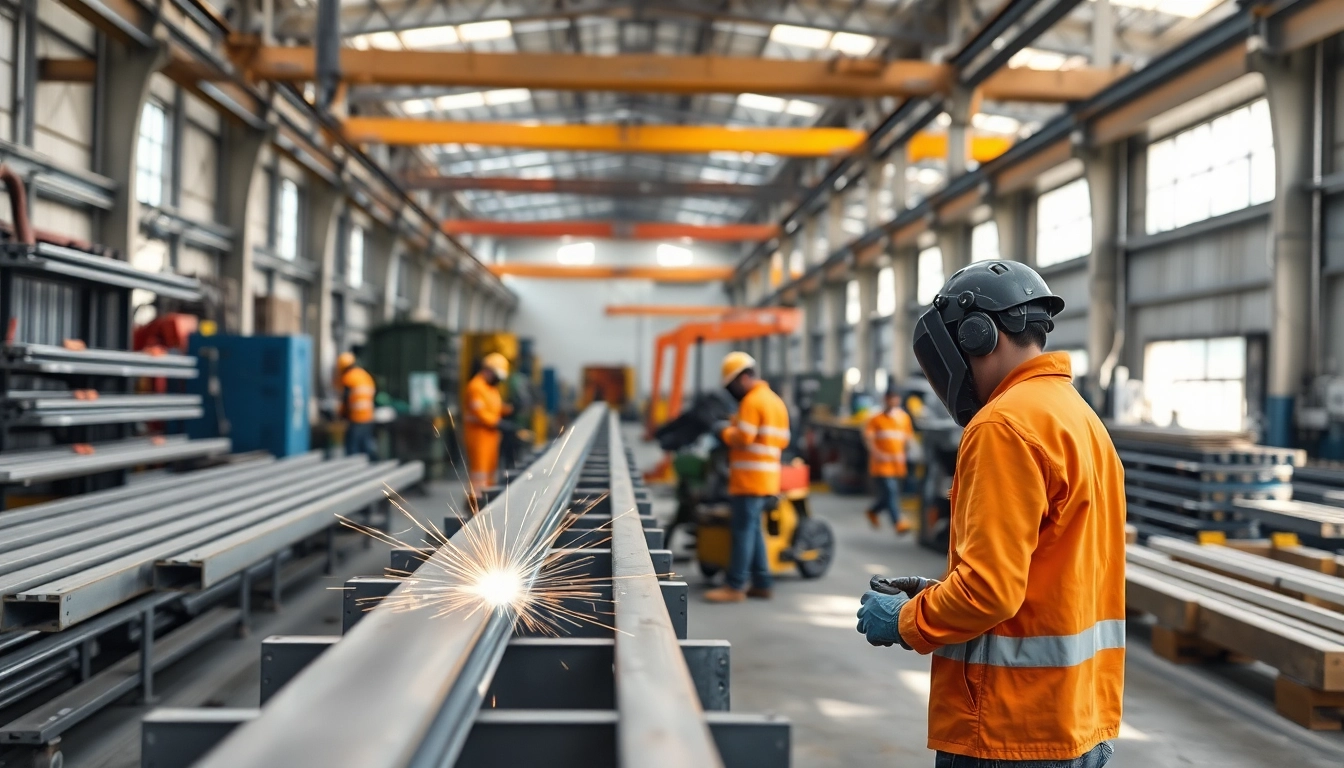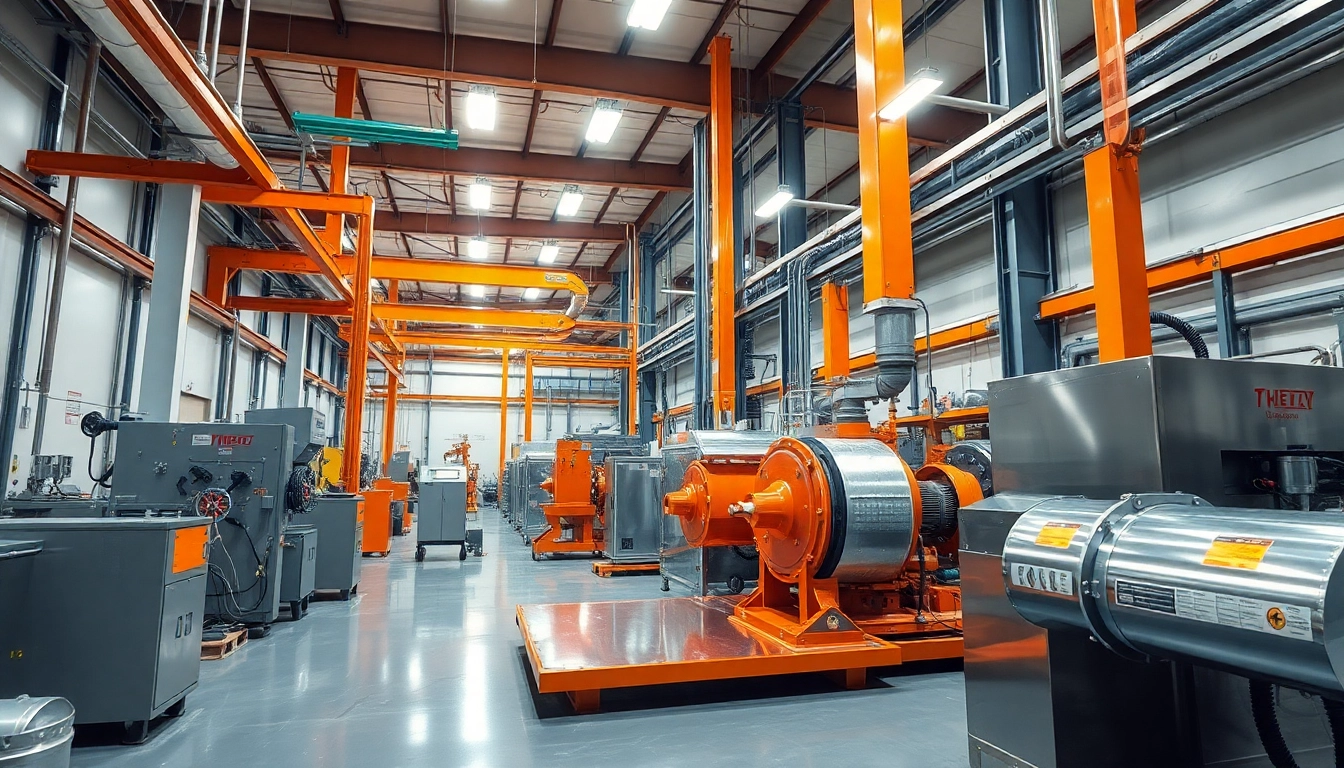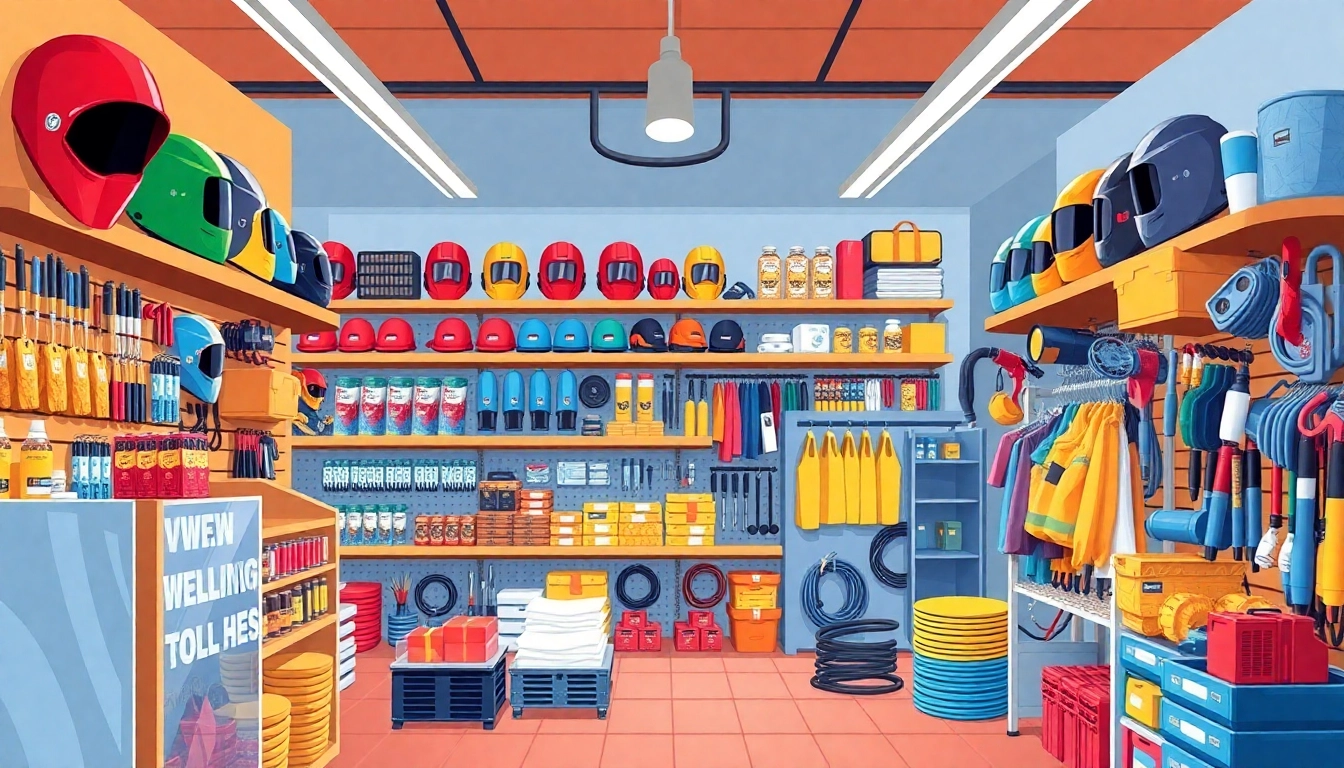Understanding the Role of a Steel Fabrication Shop
A steel fabrication shop serves as a crucial component of the construction and manufacturing industries, providing tailored solutions that meet specific project needs. In this article, we will delve into various aspects of a steel fabrication shop, including what steel fabrication entails, the significance of these shops in various sectors, the machinery involved, and much more. By the end, you will have a comprehensive understanding of how a steel fabrication shop operates and how to select the right one for your project.
What is Steel Fabrication?
Steel fabrication is the process of manipulating raw steel into various components and structures that are vital for construction and manufacturing operations. It involves several stages, including cutting, bending, welding, and assembling steel materials to create a final product tailored to specific requirements. The end products can range from simple structural supports to complex machinery parts. Steel fabrication is essential for a wide range of industries, including construction, automotive, aerospace, and infrastructure.
Importance in Construction and Manufacturing
Steel fabrication plays a pivotal role in the construction and manufacturing sectors. In construction, fabricated steel structures provide the backbone for buildings, bridges, and other infrastructures. Their strength, durability, and versatility make them ideal for a variety of applications. In manufacturing, steel components are integral to machines and products ranging from vehicles to heavy equipment. Overall, steel fabrication not only enhances the efficiency of construction and manufacturing processes but also ensures quality and safety standards are met.
Key Equipment Used in a Steel Fabrication Shop
Steel fabrication shops utilize a variety of equipment to perform the necessary processes efficiently. Some of the key equipment includes:
- Cutting Machines: Equipment such as shears, plasma cutters, and laser cutters are used to accurately cut steel to desired dimensions.
- Bending Machines: Press brakes and roll benders shape steel into required forms and angles.
- Welding Machines: MIG, TIG, and stick welders are crucial for joining steel components securely.
- Assembly Tools: Tools such as clamps, fixtures, and jigs assist in accurately positioning parts during assembly.
Types of Services Offered by Steel Fabrication Shops
Steel fabrication shops offer a range of services tailored to different client needs. These services can be broadly categorized into several key areas:
Custom Fabrication Solutions
Custom fabrication solutions involve creating unique steel components designed specifically for a client’s project. This may include designing parts from scratch, utilizing CAD software for precision, and producing small to large quantities depending on project size. Custom solutions are essential for projects that require specific sizes, shapes, or performance characteristics that standardized items cannot fulfill.
Structural Steel Fabrication Services
Structural steel fabrication services provide the essential support systems for buildings and infrastructures. These services include the fabrication of beams, columns, trusses, and other load-bearing structures. Each piece is engineered to meet strict safety regulations and specifications, ensuring that the finished product is suitable for its intended purpose.
Prototype Development and Engineering Support
Alongside traditional fabrication services, many steel fabrication shops offer prototype development and engineering support. This involves collaborating with clients to produce prototypes that assess design feasibility before full-scale production. Engineering experts can provide valuable insights throughout the design process, optimizing for functionality, performance, and cost-effectiveness.
Choosing the Right Steel Fabrication Shop
Deciding on the best steel fabrication shop for your project requires careful consideration of several factors. Here are key aspects to evaluate:
Evaluating Industry Experience and Expertise
Industry experience is a crucial determinant when selecting a steel fabrication shop. Consider their track record in your industry, the types of projects they have handled, and the expertise of their workforce. Experienced shops are more likely to understand the unique challenges of your project and provide practical solutions.
Assessing Quality Assurance Processes
Quality assurance (QA) should be a top priority when evaluating a steel fabrication shop. Inquire about their QA processes, certifications, and adherence to industry standards. A robust QA program ensures that all fabricated components meet stringent specifications, thus minimizing the risk of errors and enhancing overall project quality.
Understanding Cost Structures
Finally, understanding the cost structure is essential for budget management. Ask for detailed estimates that break down costs for materials, labor, and any additional services. It’s also wise to compare not just the prices but the overall value provided—low-cost options may not always deliver the quality or service you need.
Technological Advancements in Steel Fabrication
The steel fabrication industry has witnessed significant technological advancements that enhance operational efficiency, reduce waste, and improve product quality. Below are some of the key advancements:
Automation and Robotics in Fabrication
Automation has transformed the processes within steel fabrication shops, leading to increased precision and efficiency. Robotic systems can perform repetitive tasks such as welding and assembly with remarkable accuracy, minimizing human error and maximizing productivity. Automation also allows shops to scale operations rapidly without compromising quality.
Use of Software for Design and Planning
The integration of CAD (Computer-Aided Design) and CAM (Computer-Aided Manufacturing) software has revolutionized the design and planning stages in steel fabrication. These applications allow for intricate designs, better visualization of projects, and seamless transitions from design to production. By leveraging software tools, shops can optimize resource use and reduce lead times.
Sustainable Practices in Steel Fabrication
As the construction and manufacturing sectors face increasing pressure for sustainability, many steel fabrication shops are adopting eco-friendly practices. This may include recycling scrap steel, utilizing energy-efficient machinery, and implementing waste-reduction strategies. Sustainable practices not only appeal to environmentally conscious clients but also often lead to cost savings over time.
Measuring Success in a Steel Fabrication Shop
Assessing the performance and success of a steel fabrication shop involves tracking various metrics and obtaining feedback from clients. Here’s how success can be measured:
Key Performance Indicators to Track
Several key performance indicators (KPIs) can provide insights into a steel fabrication shop’s efficiency and effectiveness. Some of these include:
- Production Efficiency: The ratio of output to input, indicating how efficiently resources are utilized.
- On-Time Delivery Rate: The percentage of projects completed on or before the deadline.
- Quality Defect Rate: The frequency of defects in produced components, highlighting the effectiveness of quality assurance processes.
- Customer Satisfaction Scores: Metrics that gauge client satisfaction and areas for improvement.
Client Feedback and Continuous Improvement
Client feedback is invaluable for continuous improvement. Soliciting regular feedback through surveys or direct communication can help identify areas where a shop excels as well as areas needing refinement. Leverage this feedback loop to make informed decisions about operational changes and enhancements to service offerings.
Case Studies of Successful Steel Fabrication Projects
Reviewing case studies from a fabrication shop’s past projects can provide deep insights into its capabilities and performance. Successful case studies illustrate how challenges were overcome, highlight innovative solutions, and showcase the quality of workmanship. This information can be vital in building confidence in the shop’s ability to handle your specific project needs.



